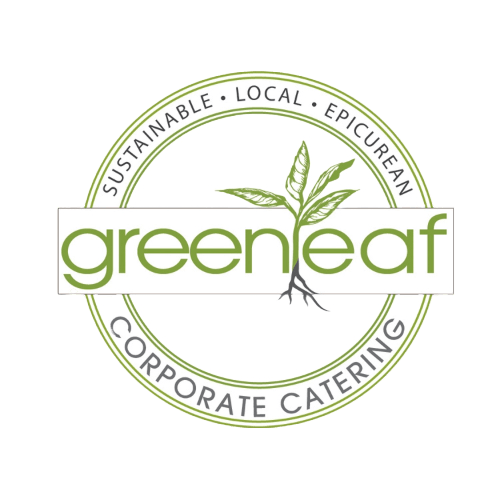
Green Restaurant Certification

The Green Restaurant Association provides a way for clients to measure a restaurant or catering company’s environmental accomplishments by using 25 years of research to measure how a company performs across seven categories:
- Water efficiency
- Waste reduction and recycling
- Sustainable durable goods and building materials
- Sustainable food
- Energy
- Reusable and environmentally preferable disposables
- Chemical and pollution reduction
Root & Stem, the parent company of Greenleaf, is proud to be a certified by the GRA.

eatREAL Certified business
 eatReal is a nonprofit, nongovernmental organization dedicating to fighting diet-related disease by realigning the food service industry’s incentives with consumers’ health interests. It was launched by the US Healthful Food Council.
eatReal is a nonprofit, nongovernmental organization dedicating to fighting diet-related disease by realigning the food service industry’s incentives with consumers’ health interests. It was launched by the US Healthful Food Council.
Our certification with eatREAL demonstrates our commitment to providing healthy options, cutting down or eliminating fried and processed foods, and using local and sustainable organic vendors.
REAL stands for Responsible Epicurean Agricultural Leadership.
- Responsible: Food and beverage options provide health benefits.
- Epicurean: Preparation maintains or enhances healthfulness of food.
- Agricultural: Food is sourced with a focus on quality, sustainability, and animal welfare standards.
- Leadership: Establishment demonstrates best practices and enables better choices.
Our certification means that we were audited for both health and sustainability by a Registered Dietitian and by the US Healthful Food Council.
eatREAL Animal Initiatives
At DC GreenLeaf, we care about the well-being of farm animals and that is why we commit to source 100% of our chicken, eggs, beef, and game meats from farms and ranches with an animal welfare certification recognized by REAL Certified and ASPCA® Shop With Your Heart program. Furthermore, by 2024, we will only source chicken from farms that are certified by Global Animal Partnership and require that chickens be processed in a CAS system that’s widely hailed as more humane.
